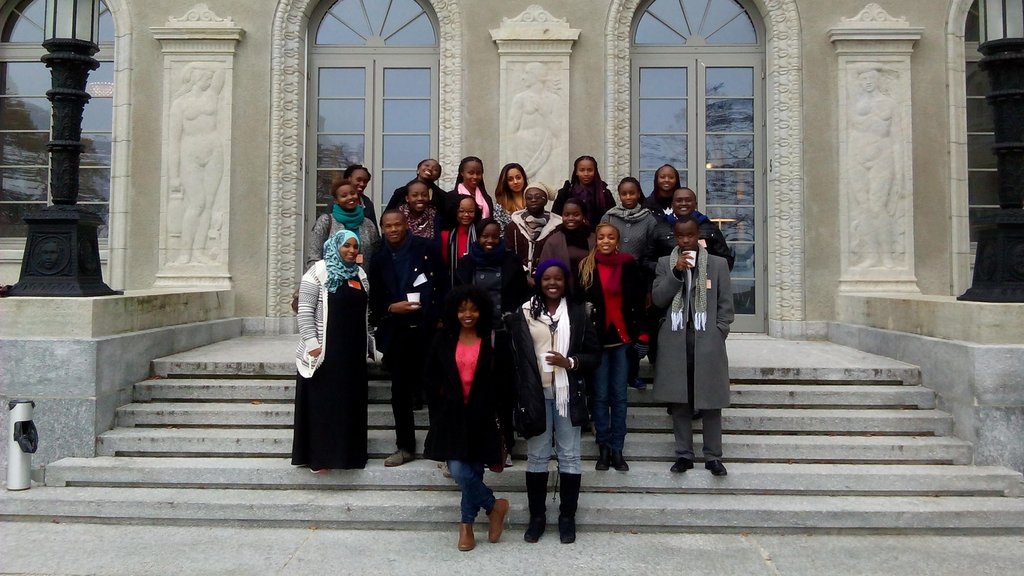Opinions - 11.11.2015 - 00:00
Forging a different path for Africa
As part of the partnership between the University of St.Gallen and Strathmore University in Nairobi-Kenya, students from Kenya attended a five day seminar titled “Doing Business in Africa” at the HSG together with 30 HSG students in October 2015. Mumbi Maria Wachira comments on the outcomes of the programme.


12 November 2015. No other region in the world is ridden with as much controversy as Sub Saharan Africa. A region where 47% of 800 million people live on less than 1.25 dollars a day. However, the continent has also shown immense progress through increased foreign investment, growth of local businesses, improvements in higher education and developments in technology. As the continent grows, there is an imminent need for organizations to penetrate Africa’s market. The promise of rich opportunities seems certain yet investing in the African market is as promising as it is precarious.
Patience and fortitude to be successful
Africa is not a joint economy but a patched tapestry of secluded economies strung up to form one region. Furthermore the continent is still plagued by numerous challenges such as heightened levels of corruption, increased poverty, poor infrastructure, cultural differences and political instability. To be successful in Africa from a business perspective requires a great deal of patience and to some extent fortitude.
As more businesses set their sights on Africa it has become imperative for universities from developed countries to teach their students about the intricacies of doing business in Africa. For instance IESE Business School in Spain has a module within their MBA program that focuses on teaching students about Africa’s business environment. The University of St.Gallen also has courses designed to provide students with an overview of the critical aspects of doing business within the region such as identifying opportunities and risks, analysing political and macroeconomic environments of African countries and regional dynamics among others. Though such progressions in education are positive, the question remaining is whether that is enough to truly understand the region. And if not, what is the best way people can learn about Africa?
Take for example issues surrounding growth. Development in Africa may not follow traditional modes of economic advancement such as the model suggested by Kuznet’s curve. The crux of the matter is Africa stands on the brink between progress and regression. Approximately 5 to 6 % of Africa’s population are enrolled within institutions of higher learning. This means, Africa’s future is in the hands of the few. It is not clear whether this group of people will take the path towards positive change and bring about a new age for Africa or if the same group will continue on the same old path of corruption and ineptitude.
With each passing year, the dynamics between these two opposing ‘paths’ change. In some cases, countries in Africa seem to take both paths simultaneously. For example many African governments have adopted policies to encourage open trade, privatized previous state owned enterprises and lowered corporate taxes. Concurrently, the same governments have been accused of misappropriating public funds, accepting bribes and gross misconduct.
Existing contradictions
Cultural differences extant within the region are even more difficult to comprehend. Firstly culture differs between countries and within countries. Kenya for example is home to over 40 tribes. Though there is an increasing chasm between African people and ancient African traditions, many people still cling to their cultural identity and perceive themselves as different from people from other tribes. Whether this is harmful or a hindrance to future development is an issue of contention. It is possible to find highly educated Africans who still follow backward cultural practices. Why do such contradictions exist? Understanding the underlying factors that cause these discrepancies in governmental actions or the influence African culture has on the people may require more than a course taught remotely.
There is an African proverb that says “To come out of one’s house means learning”. Thus it may be best for students who want to understand Africa to actually study it from the source. Perhaps further collaborations are required with African universities, institutions and businesses to ensure that students are able to get a better grasp of the changing dynamics prevalent in the region. In any case, it seems that all roads are leading to Africa.
About the author
Mumbi Wachira is a doctoral researcher at the University of St.Gallen. She currently works as a research assistant at the Institute of Public Finance, Fiscal Law and Law & Economics at the University of St.Gallen. Her doctoral research focuses on sustainability reporting practices among publicly listed companies in Sub-Saharan Africa.
More articles from the same category
Discover our special topics











